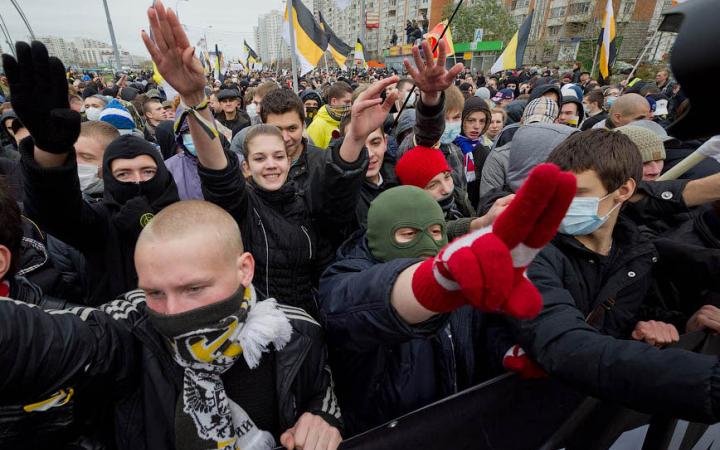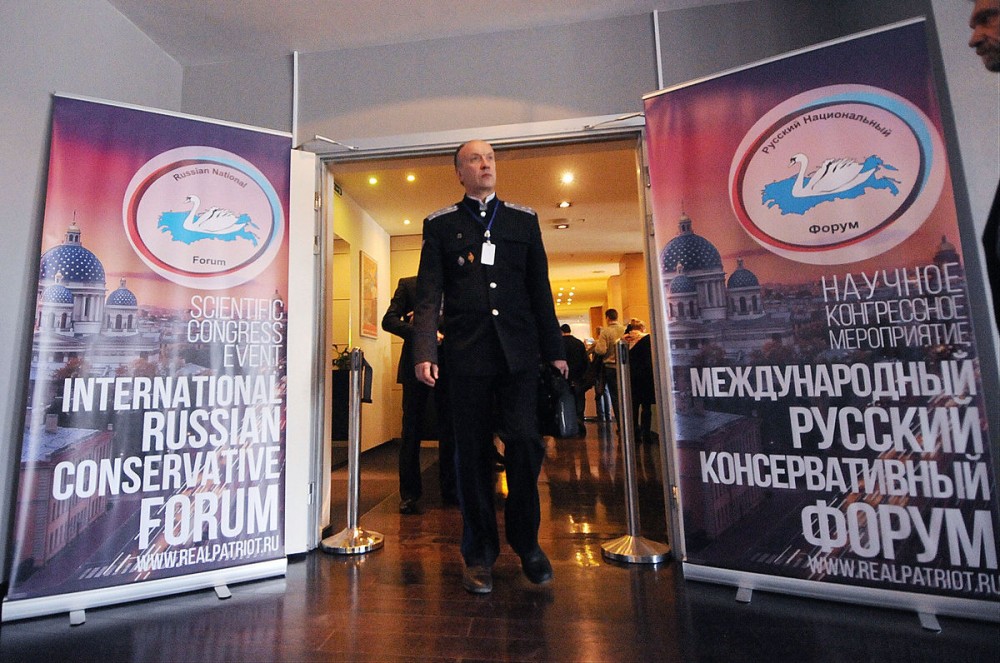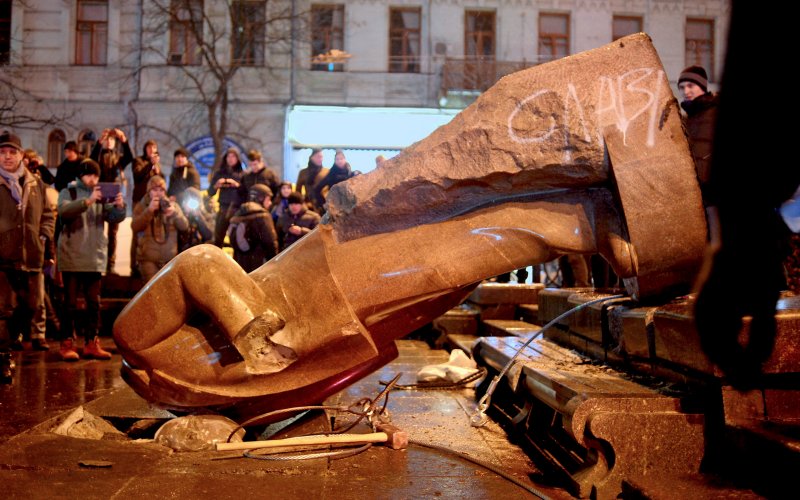The war Vladimir Putin is conducting in Ukraine is leading not just to the economic destruction of Russia but to its moral destruction as well, and that in turn is opening the way for the rise of fascism, Lev Shlosberg says. In fact, he argues, Russia today is becoming “ideally ready” for that horrific system.
In an article in the current issue of “Pskovskaya Guberniya,” Shlosberg, who represents the Yabloko Party in the regional legislature, argues that the course of war “chosen in essence by one man” is costing everyone enormously and that “many have already paid with their lives.”
Despite these costs, the deputy continues, “Putin has chosen for himself and his country ‘precisely this path of ‘consolidation of Russian society,” one based on the notion that “’the besieged fortress of Russia’ is ready to fight with the entire rest of the world. War for it is life; peace for it is death.”
The longer this war goes on, the more serious its consequences will be, he continues. “One year of war has been sufficient for the destruction of the economic successes of the past ten years,” has already “thrown Russia back two decades,” and is continuing to do so.
And for Putin, taking that revenge on Ukraine is absolutely necessary now before a generation arises in Russia which will make the same choices and thus put an end to his own rule, Shlosberg says. To prevent that from happening, he continues, Putin will pay “any price” in Ukraine.
“Russia has neither the forces nor the means to continue this war for another year,” Shlosberg says, but “everything is being thrown into this pyre of war.” And Putin is not stopping because he believes he can gain strength by using military force to suppress Ukraine.
But what the Kremlin leader is doing has nothing to do with seizing land. It is all about taking revenge against Ukraine for everything its people have decided on – “for the European choice of the majority of society” and for the ouster of the Kremlin’s man on the scene, Viktor Yanukovych.
And for Putin, taking that revenge on Ukraine is absolutely necessary now before a generation arises in Russia which will make the same choices and thus put an end to his own rule, Shlosberg says. To prevent that from happening, he continues, Putin will pay “any price” in Ukraine.
And for Putin, taking that revenge on Ukraine is absolutely necessary now before a generation arises in Russia which will make the same choices and thus put an end to his own rule, Shlosberg says. To prevent that from happening, he continues, Putin will pay “any price” in Ukraine.
He will do so, the Pskov deputy says, because he is “certain that Russian society supports him in his desire to take revenge on Ukraine. He is certain that his people are ready to pay any price, including with their lives, for his policy,” a conviction that arises from his having raised in Russia “a people of war.”
Putin believes as well that if he wins militarily, no one will judge him. Only losers are judged in his understanding. And tragically, he has managed to convince many Russians who today are the people of war to share that view. “The people of war greets the president of war.”
As horrific as the economic consequences of Putin’s war have been, the moral consequences of this kind are still worse: “since the end of the USSR, Russian society was never in such a horrific moral state as it is now. Russia today is a country ideally ready for fascism.”
“...Since the end of the USSR, Russian society was never in such a horrific moral state as it is now. Russia today is a country ideally ready for fascism.”
Fascism, Shlosberg continues, “is when millions of people are happy as a result of hatred, when antagonism shapes the attitudes of the people and when those who think differently become state criminals.”
“Fascism is when the state raises a people of war,” when there is a ministry of propaganda which is what “in essence the entire Russian state power” has become, and when people become convinced that they must never question the leader’s policies or his wars, when as now “the people of war” predominate “over the people of peace.”
Most Russians think that the Nuremberg trials were only about the military crimes of the Nazi regime, “but in the framework of [that process] was studied how the fascist state was created and how an entire people” at the center of Europe fell under its spell.
At Nuremberg, it was shown that “even a great people of science and culture does not have immunity against fascism. Fascism burned up public morality in Germany with the speed of fire,” and the result was horrific. Its “centuries’ old culture did not save it from fascism.”
“The people of war do not need culture” because “the fuel in this conflagration became the lie, the all-embracing state lie,” with the burning of books symbolizing that reality.
“The people of war do not need culture” because “the fuel in this conflagration became the lie, the all-embracing state lie,” with the burning of books symbolizing that reality.
Putin has raised up a people of war because in reality “it is very easy to become a people of war. One need only hate more than love, wish one’s neighbor not good things but destruction, think that the greatness of the Motherland requires the denigration of other peoples, and be gladded by participation in their denigration.”
“A people of war is capable of destroying its own Motherland because hatred and lies destroy any state and any society,” Shlosberg says, and “the Russian state is rapidly moving toward its own Nuremberg process, through war,” a movement that is “taking place each day and each hour.”
“It is very difficult to stop,” he continues, as difficult as stopping a train coming out of the mountains out of control. And at present “there are very few people in Russia who are trying to stop this insanity.” Is there any chance that they will be able to do so?
“This is the question for the people of peace,” who in Russia today are far less numerous than “the people of war.” But they should take courage from the following fact: “a soldier at war always listens to the voice of peace because he wants to live.” Because that is so, “it is wrong to be silent.”





